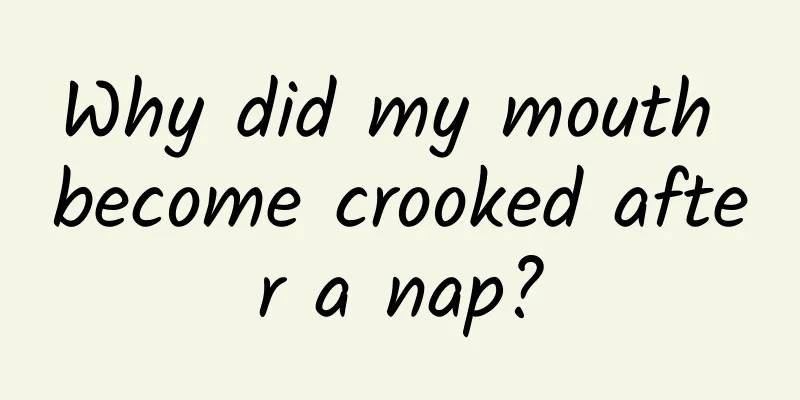What medicine should I take if ovulation is not good?

|
Ovulation is very important for women. On the one hand, good or bad ovulation indicates whether the female's reproductive health is good. On the other hand, for women who want to have children, if ovulation is not good, it will often lead to infertility. When ovulation is not good, you can seek treatment under the guidance of a doctor, which can achieve the effect of promoting ovulation. Let's take a look at what medicine to take for poor ovulation. What medicine should I take if ovulation is not good? 1. Clomiphene has anti-estrogen effects Clomiphene, as a synthetic non-steroidal compound, has a strong anti-estrogen effect. It can act on receptors in the hypothalamus, blocking the negative feedback information of endogenous estrogen to the hypothalamus, thereby increasing the secretion of gonadotropin and thus increasing ovulation. Its recovery rate for human ovulation is as high as 70% to 80%, and the probability of pregnancy in women after treatment is between 30% and 40%. It is suitable for conditions such as anovulation, amenorrhea, luteal insufficiency, amenorrhea and lactation syndrome, and pituitary tumors. 2. Gonadotropin helps ovulation Each gonadotropin contains 75 international units of follicle-stimulating hormone and luteinizing hormone. It cannot be taken orally and needs to be injected intramuscularly into the patient. It can stimulate the growth and maturation of follicles, and also stimulate the glands to secrete estrogen. Can also be used with HCG to stimulate ovulation. Suitable for endogenous pituitary gonadotropin deficiency, such as Sheehan's disease. It can also be used by those who have insufficient hypothalamic GnRH secretion and who have not responded significantly to clomiphene. The probability of ovulation recovery after use is about 90%, and the probability of pregnancy is between 50% and 70%. 3. Bromocriptine helps ovulation Ovulation-stimulating drugs are generally used to treat female infertility caused by anovulation, but the side effects of using ovulation-stimulating drugs are still very obvious. The ovaries continue to ovulate under the stimulation of the drugs, which can easily cause irregular menstruation, premature ovarian failure, and in severe cases, ovarian tumors. Therefore, you need to be cautious when taking ovulation-stimulating drugs and make sure to take them under the guidance of a doctor. 4. Luteinizing hormone-releasing hormone helps ovulation Suitable for anovulators with insufficient hypothalamic secretion. Use micropump pulse intravenous injection, with pulse intervals of 90 to 120 minutes, small doses of 1 to 5 μg/pulse, large doses of 10 to 20 μg/pulse, for 17 to 20 days, or starting from the 5th day of the menstrual cycle, intramuscular injection of 50 μg daily for 7 to 10 consecutive days. |
<<: Bitter taste in the mouth when eating during pregnancy
>>: One week after ovulation, the feeling of menstruation
Recommend
What to drink when you have period pain
Many female friends experience abdominal pain dur...
How to treat Yin blood deficiency
The concept of Yin-blood deficiency is relatively...
What causes pelvic pain?
Pelvic inflammatory disease is a common gynecolog...
How to improve constipation through diet?
Constipation, a common digestive system problem, ...
My menstrual period is a little sticky, why?
Every month women have a body cleansing process, ...
The impact of ovarian cysts on pregnancy, I didn’t expect it to be so harmful
A woman's eggs develop and grow in the ovarie...
What is the cause of increased vaginal discharge a week before menstruation?
Everyone has some signs when they have their peri...
What are the benefits of eating broccoli? How to choose broccoli
Broccoli is one of the vegetables that contains t...
Improper makeup application may cause dry eyes! What's going on?
See this title Some girls may be surprised: I'...
What should I do if I have vulvar itching and lower abdominal pain?
Vulvar itching and lower abdominal distension and...
Why do girls urinate frequently?
Frequent urination and urgency are common to ever...
What are the causes of sandstorms and what are the hazards of sandstorms?
The period between spring and winter is the peak ...
What to do if women have cold hands and feet in winter
Many women will find in winter that even though t...
What are the symptoms of developmental impairment in girls?
No matter it is a girl or a boy, when they reach ...
Causes of blood clots during menstruation
Menstrual problems are a problem that many female...









